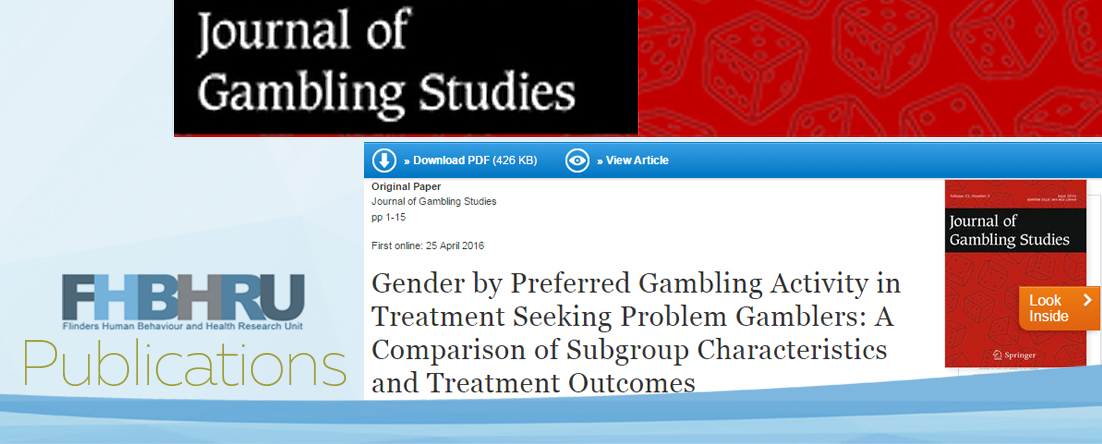
Gender by preferred gambling activity in treatment seeking problem gamblers: A comparison of subgroup characteristics and treatment outcomes.
Gender by preferred gambling activity in treatment seeking problem gamblers: A comparison of subgroup characteristics and treatment outcomes – Yasmin Khanbhai, David Smith, Malcolm Battersby.
Journal of Gambling Studies – Published 25 April 2016
The first author of this accepted publication is Jasmine Khanbhai, a medical student on his clinical placement with our Department in 2014. Jasmine has been working with David Smith and Melanie Harris on the project titled ‘Gender by preferred gambling activity in treatment seeking problem gamblers’.
Abstract
Problem gambling is a growing public health concern and treatment incompletion levels remain high. The study aims to support and extend previous studies in relation to the heterogeneity of the gambling population based on gender and gambling type, and the implications of subgroup differences on treatment outcomes. Additionally, the concept of drop-out is addressed in terms of categorical treatment measures. The empirical findings are examined in the context of the theoretical framework of the pathways model. Participants were recruited from the Statewide Gambling Therapy Service and stratified into subgroups based on gender and gambling mode preference [Electronic Gambling Machines (EGM) or track race betters]. Baseline predictors collected and analysed using multinomial logistical regression included demographic information as well as gambling variables, while treatment outcomes consisted of three therapist rated measures. Significant differences between the subgroups were found for age, marital and employment status, gambling duration, alcohol use and the Kessler 10 measure of psychological distress. Specifically, male track race gamblers were younger, married, employed, had a longer duration of gambling, higher alcohol use and lower psychological distress relative to EGM users. No difference was found in any of the treatment outcomes, however, consistent with previous studies, all subgroups had high treatment incompletion levels. The findings demonstrate the importance of screening, assessing and treating problem gamblers as a heterogeneous group with different underlying demographics and psychopathologies. It is also hoped future studies will continue to address treatment incompletion with a re-conceptualisation of the term drop-out.
Read the full journal article here: http://link.springer.com/article/10.1007%2Fs10899-016-9614-x
